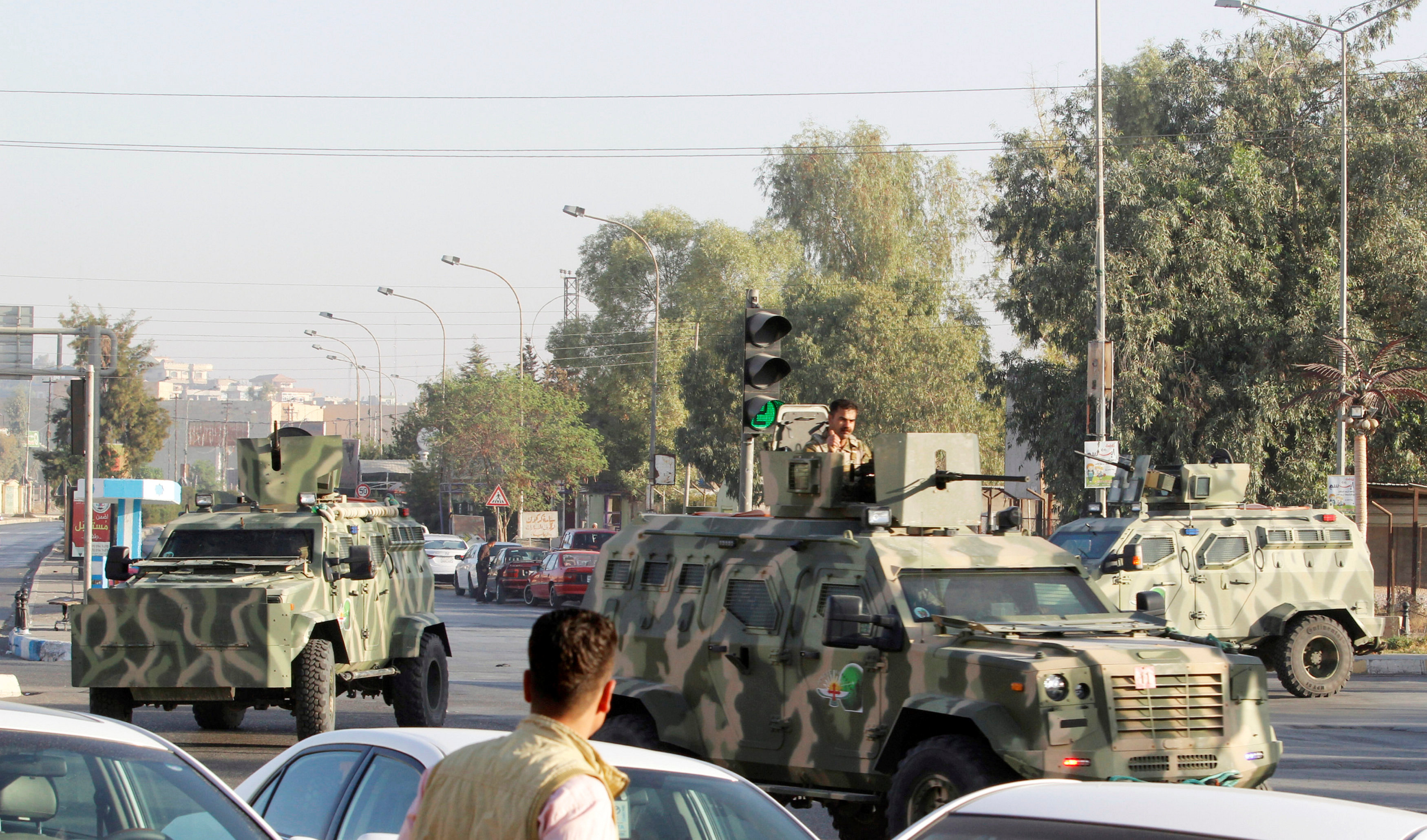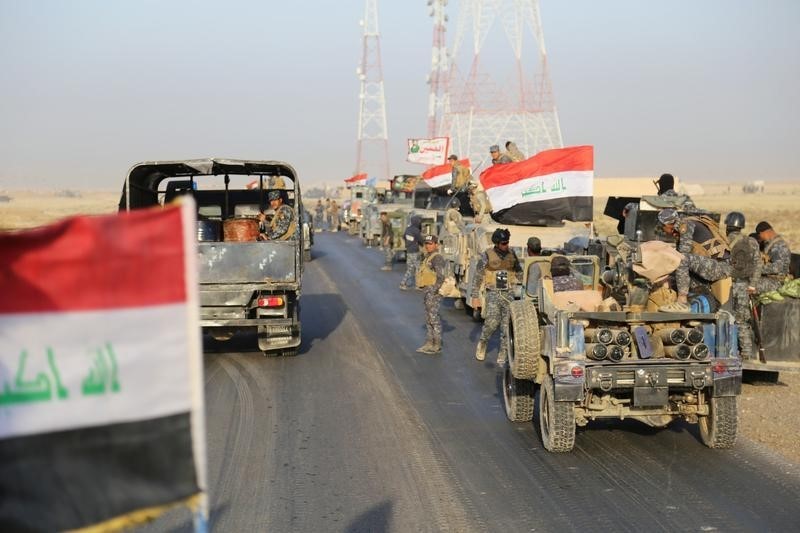
By Maher Chmaytelli and Stephen Kalin
BAGHDAD/BARTELLA, Iraq (Reuters) – Islamic State expanded its attacks on Monday against Iraqi army and Kurdish forces to relieve pressure on its militants confronting an offensive on Mosul, its last major urban stronghold in the country.
About 80 Islamic State-held villages and towns have been retaken in the first week of the offensive, bringing the Iraqi and Kurdish forces closer to the edge of the city itself – where the battle will be hardest fought.
The Mosul campaign, which aims to crush the Iraqi half of Islamic State’s declared caliphate in Iraq and Syria, may be the biggest battle yet in the 13 years of turmoil triggered by the U.S.-led invasion of Iraq in 2003, and could require a massive humanitarian relief operation.
Some 1.5 million residents remain in the city and worst-case forecasts see up to a million being uprooted, according to the United Nations. U.N. aid agencies said the fighting has so far forced about 6,000 to flee their homes.
In a series of counter-attacks on far-flung targets across Iraq since Friday, Islamic State fighters have hit Kirkuk, the north’s main oil city, the town of Rutba that controls the road from Baghdad to Jordan and Syria, and Sinjar, a region west of Mosul inhabited by the persecuted Yazidi minority.
Yazidi provincial chief Mahma Xelil said the Sinjar attack was the most violent in the area in the last year.
He said at least 15 militants were killed in the two-hour battle and a number of their vehicles were destroyed, while the peshmerga suffered two wounded.
Islamic State said two peshmerga vehicles were destroyed and all those on board were killed.
Islamic State committed some of its worst atrocities in Sinjar when it swept through the Yazidi region two years ago, killing men, kidnapping children and enslaving women. Kurdish fighters took back the region a year ago.
The Yazidis are a religious sect whose beliefs combine elements of several ancient Middle Eastern religions and who speak one of the Kurdish languages. They are considered infidels by the hardline Sunni Islamist militants.
REGIONAL INTERVENTION
The Iraqi force attacking Mosul is 30,000-strong, joined by U.S. special forces and under American, French and British air cover. The number of insurgents dug in the city is estimated at 5,000 to 6,000 by the Iraqi military.
The Mosul campaign has drawn in many regional players, highlighting how Iraq is being used as a platform for influence between rival parties – Sunni-ruled Turkey and its Gulf allies and Shi’ite Iran and its client Iraqi militias.
Turkey and Iraq’s Shi’ite-dominated central government are at loggerheads about the presence of Turkish troops at a camp in northern Iraq, without approval from Baghdad’s Shi’ite-led government.
Ankara fears that Shi’ite militias, which have been accused of abuses against Sunni civilians elsewhere, will be used in the Mosul offensive. Turkey’s own presence in Iraq has also helped inflame sectarian passions.
It was from Mosul’s Grand Mosque that Islamic State leader Abu Bakr al-Baghdadi declared a caliphate over parts of Syria and Iraq in 2014. Within a year his group was in retreat in Iraq, having lost the Sunni cities of Tikrit, Ramadi and Falluja.
The Iraqi army last week dislodged the insurgents from the main Christian region east of Mosul and its elite unit, the Counter Terrorism Service (CTS) has pressed ahead with operations to clear more villages since Saturday.
CTS forces took three villages west of the Christian town of Bartella in an early morning attack on Monday and are now outside Bazwaia village, between five and seven km (three to four miles) east of Mosul, Lieutenant General Abdel Ghani al-Assadi told Reuters.
The region of Nineveh around Mosul is a mosaic of ethnic and religious groups – Arabs, Turkmen, Kurds, Yazidis, Christians, Sunnis, Shi’ites – with Sunni Arabs the overwhelming majority.
The army’s press office said a total of 78 villages and town have been recaptured between Oct. 17, when the Mosul operation started, and until Sunday evening.
More than 770 Islamic State fighters have been killed and 23 captured. One hundred and twenty-seven car bombs used in suicide attacks on advancing troops have been destroyed, according to an army statement.
Islamic State says it has killed hundreds of fighters from the attacking forces and blocked their progress.
The army is trying to advance from the south and the east while Kurdish peshmerga fighters are holding fronts in the east and north.
The distance from the frontlines to the built-up area of Mosul ranges from 40 kilometers (25 miles), in the south, to 5 kilometers at the closest, in the east.
After Islamic State’s attack on Friday in Kirkuk, the hardline Sunni militant group has launched other diversionary attacks in Sinjar and Rutba, 360 km west of Baghdad, where they killed at least seven policemen, according to security sources.
Federal police units arrived in Rutba overnight to back up the local forces, according to the sources who estimate that 16 insurgents have been killed so far. Islamic State said in an online statement that dozens of security force members and pro-government Sunni tribal forces had fled Rutba.
(Additional reporting by Saif Hameed; Editing by Dominic Evans)

















